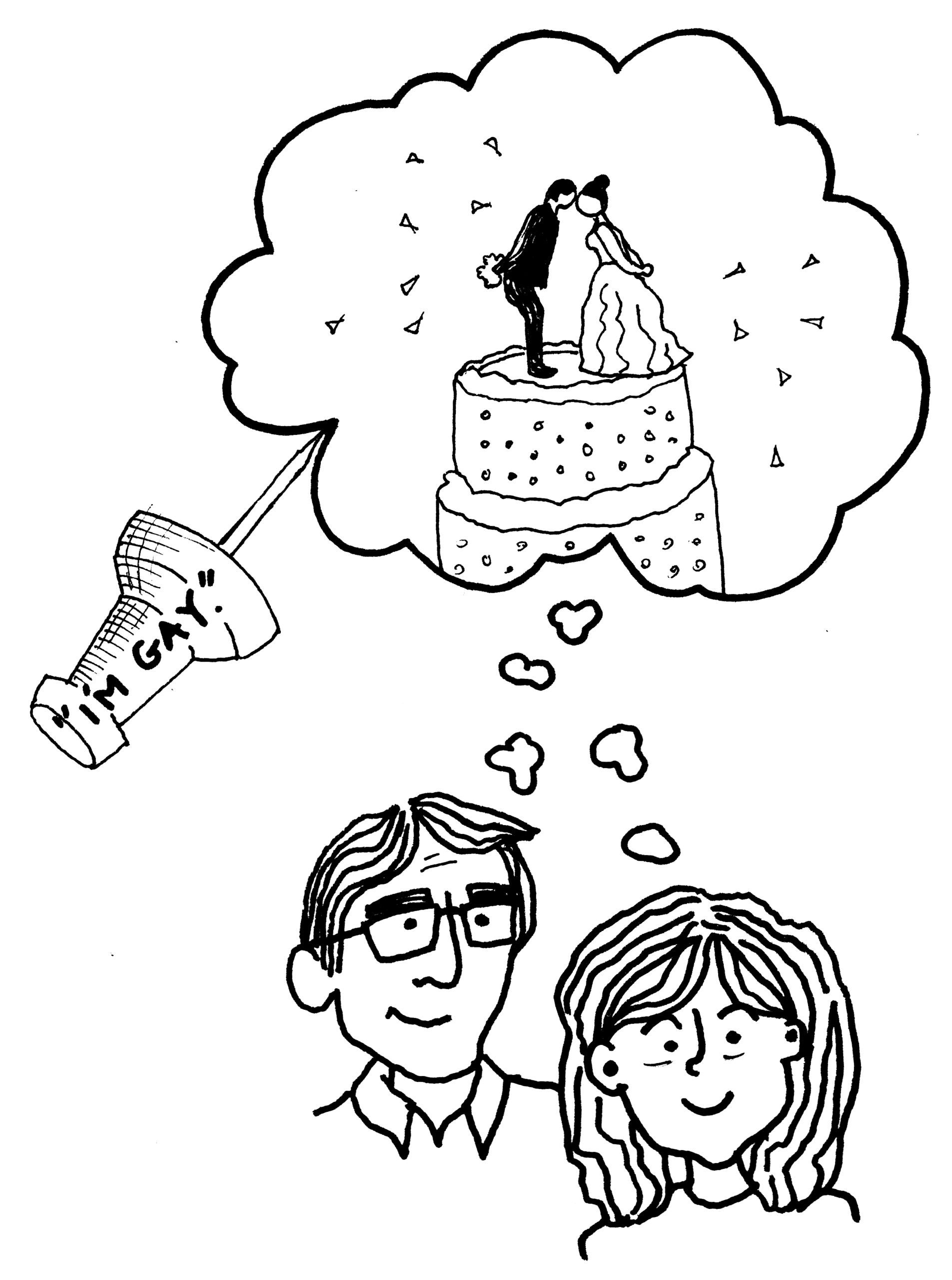From preservation to liberation
April 21, 2017
 This
piece represents the opinion of the author
.
This
piece represents the opinion of the author
.
A simple phrase justified my self-hatred. “That’s so gay.” I remember feeling numb as I stared into the eyes of my friend’s mother, shocked as she spoke the words in reference to her son’s unwarranted detention. If only she knew.
I first realized that I was gay when I turned eleven. I hated myself for it. I told myself that this was something I would never disclose. For the next eight years of my life, I stuck by that promise. I assured myself that being gay was something I could fix. I slowly realized that this was not the case. My sexual identity differed from the other, conquerable, difficulties I confronted. This realization as a pre-teen devastated me. For the first time, I faced a challenge for which I had no solution. Growing up in a conservative, rural town in northwestern New Jersey only made this realization more difficult. I internalized my anger. In middle school and high school, I did everything possible to ensure that my peers, family members and friends never questioned my sexuality. While I enjoyed sports, their ability to disguise my sexuality greatly added to their appeal. In addition, I feigned relationships with females and pretended to like music and television shows to fit a stereotypical straight male role. I was terrified of looking weak and monitored everything I said and did in order to conform to acceptable gender norms. I was frightened of slipping up. My fear and self-hatred became an extremely heavy burden. I forced myself to adopt a persona that protected me. While I loved my small town, I knew what it expected of me as a male and I mechanically delivered.
Fortunately, Bowdoin was different. I knew I had the ability to be upfront and honest with myself and others here. I knew that this move from a working-class town with strict, traditional values to an elite, progressive college campus was my best chance to begin anew. Something that crossed my mind every hour of my childhood and caused so much anxiety and negativity was less-than-shocking news at Bowdoin. It was an amazing realization that nobody I met or associated with on this campus looked at my sexuality as a measure of my worth or who I was as a human being. Nonetheless, I knew that the acceptance that I felt within the Bowdoin Bubble, in spaces like Moulton Union and Ladd House, would not protect me forever.
As I became more comfortable with my sexuality here, it became increasingly difficult to maintain the façade I wore at home. When I got off the plane in Newark for my first break from college, I became the straight, fictional version of myself that eleven-year-old me had created nearly a decade before. I scrutinized my own thoughts and became cold and unemotional—traits that protected me in high school. As successive breaks came and went, I grew increasingly tired of explaining to my aunt or father or cousin that the women I talked about and had pictures with on social media were just friends, not girlfriends. The heterosexual identity I once depended on became a heavy burden as time passed. The liberation I felt at Bowdoin only exaggerated the weight of this mask I wore at home, prohibiting me from articulating to my parents the amazing experiences I had at Bowdoin. I found it much easier to be straightforward about my sexuality with friends than with my parents.
To be clear, my mom and dad are extremely accepting people. However, I hesitated to tell them because I was almost certain that they envisioned my future, as their only son, to include biological grandchildren, a daughter-in-law and a continuation of the family name. I was not ready to break it to them that the wedding they imagined for me would never happen.
By the time I returned for sophomore year, I still hadn’t told my parents. I returned to campus in the fall feeling guilty that the two people I loved the most were still left in the dark. By second semester, the guilt was overwhelming. So, three weeks ago I messaged my parents and told them. I know a lot of people probably think texting is one of the worst ways to announce something so personal, but I believed that my sexual preferences did not warrant such a formal sit-down. As I had predicted, both of them were extremely accepting. According to my sister, my dad is now outspoken at the dinner table about LGBT rights. Two years ago, I would never have imagined being so authentically confident and comfortable without the guise that the scared and isolated eleven-year-old created to protect himself.
I am aware how lucky I am. My parents were extremely accepting of my sexuality. As a white male from the middle class, I have privileges that many do not. It took an institution built from elitism and wealth to help me find contentment, and I cannot imagine how hard it must be for those without such advantages. I must thank my friends, peers and professors at Bowdoin for helping me help myself. To my friends and family back in New Jersey, thank you for the support. And to everyone who is uncomfortable with their sexuality and may or may not have certain support systems and privileges, I am here.
Michael Walsh is a member of the Class of 2019.


Comments
Before submitting a comment, please review our comment policy. Some key points from the policy: